Healthy Trees are Happy Trees
Expertly Combating
Tree Disease and Infestation
With 32 years of experience in the industry, Shearer Tree Service, LLC knows a thing or two about disease and insect infestation. Family and locally owned and operated, we live in the area and deal with diseased trees and insect infestation issues all the time.
If you need help with a diseased tree, turn to Scott Shearer, our ISA-certified arborist. A certified arborist is a tree expert. Arborists are experienced and knowledgeable individuals who are well educated and trained to diagnose, treat and/or provide the best recommendation for restoring a tree’s vigor, function and overall good health.
If you’re having a problem, we’ll get to the bottom of the issue. Stop by or call us today for a free estimate.
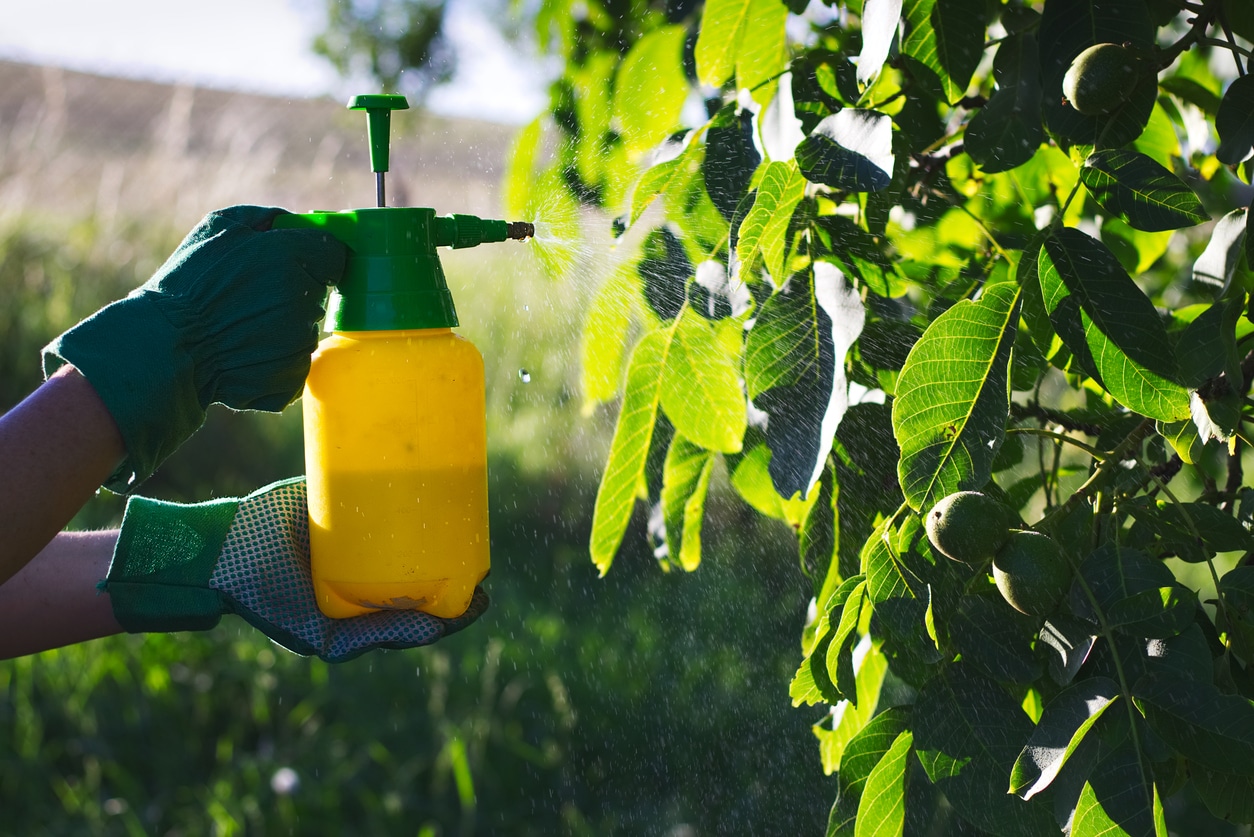
Count On Our
Available Treatments
- Emerald Ash Borer: We effectively combat EAB by utilizing an all-natural chemical injection around the lower diameter of the tree trunk. We begin injecting trees in the early spring once leaves appear and continue all summer. Each injection will last two years.
- Oak Wilt: While oak trees can only be trimmed from October through March. If trees display premature die-off or burnt foliage in late spring or early summer, the trees need to be assessed for possible oak wilt. This treatment is quite extensive as the roots have to be exposed for a macro-infusion.
- Needle Cast, Bagworms and Spider Mites: All varieties of spruce trees are sprayed to eradicate these problems starting in the spring.
- Japanese Beetles: Trees are typically sprayed the end of June or early July.
- Fertilizer: Root feeds are done in early spring or late fall. Scott encourages home and business owners who take great pride in their yards and landscape to consider root feeds as a means of protecting their investment. Do not wait until you see signs of decline.

Agrilus Planipennis
Emerald Ash Borer
Emerald Ash borer larvae feed in the outer sapwood of ash trees. This causes girdled stems and branches. Once trees show signs of infestation, they will die if left untreated.
Description: Adult beetles are emerald green and approximately ½-inch long. Larvae are segmented flatworms that can reach 1-inch long.
Signs of Infestation:
- Canopy dieback
- D-shaped emergence holes visible in the bark
- S-shaped feeding galleries under the bark of the tree.
- Woodpecker activity
Treatment:
Trees affected:
Ash Trees
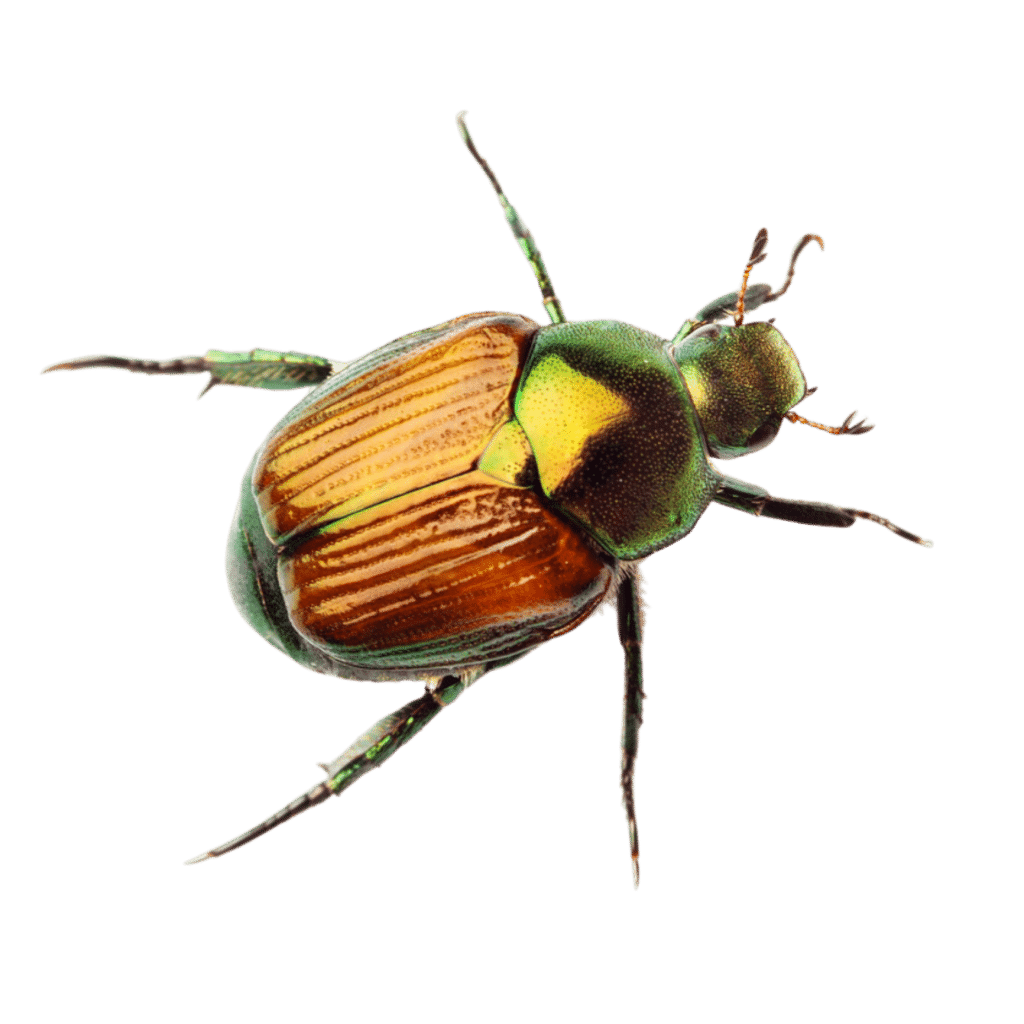
Popillia Japonica
Japanese Beetle
A Japanese beetle is an invasive pest of shade trees, ornamental shrubs and vines, and garden plants.
Description: The adult beetle is a very brilliant metallic green. They are less than ½-inch long and oval-shaped.
Signs of Infestation:
- Lace-like skeleton of leaves
- Browning of leaves
- Premature defoliation
Treatment:
Systemic treatment or sprays
Trees affected:
Most severely attacked susceptible trees are lindens, maples, birches, apple, plum and cherries.
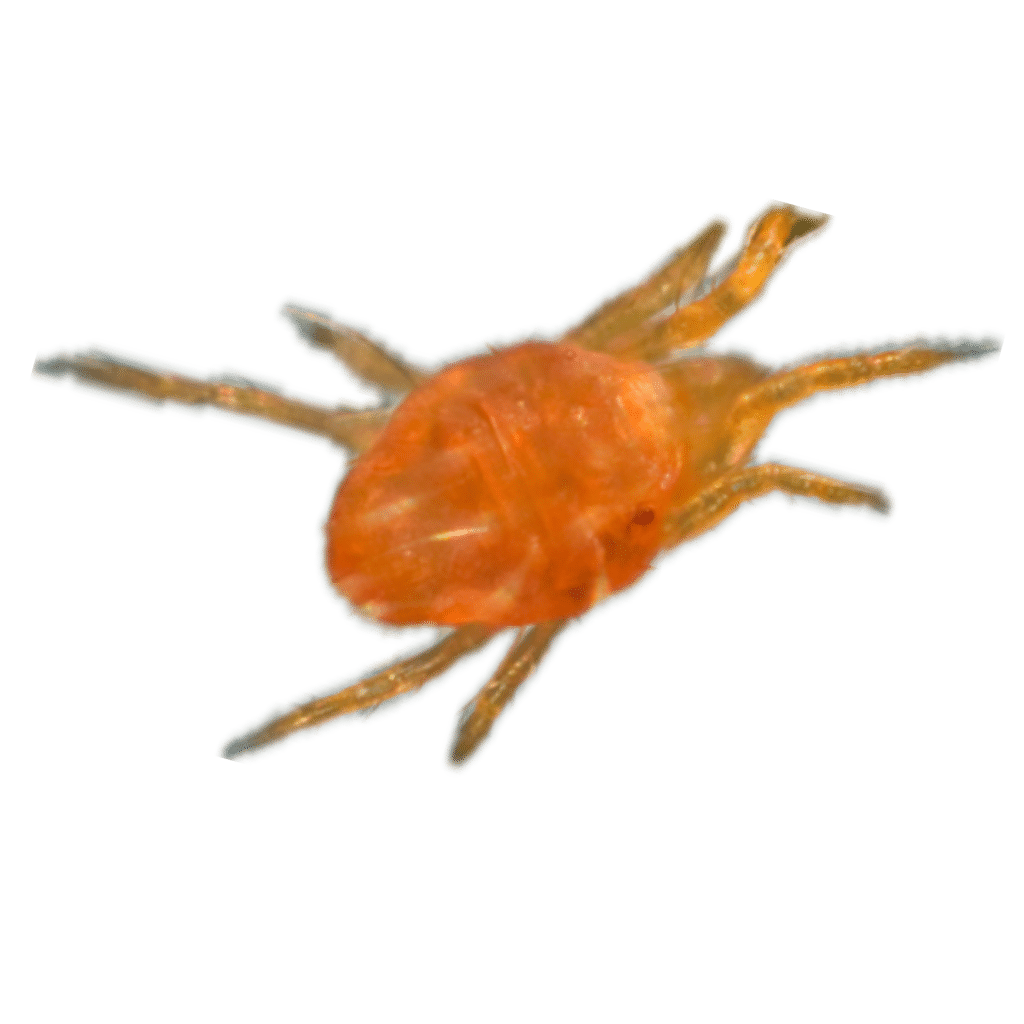
Tetranychidae
Spider Mites
Spider mites suck the plant juices and chlorophyll from leaves. They rapidly build up population if the weather conditions are favorable to the pest.
Description: Mites are microscopic pests.
Signs of Infestation:
- Foliage drops prematurely
- Webbing
Treatment:
Application of insecticide
Trees affected:
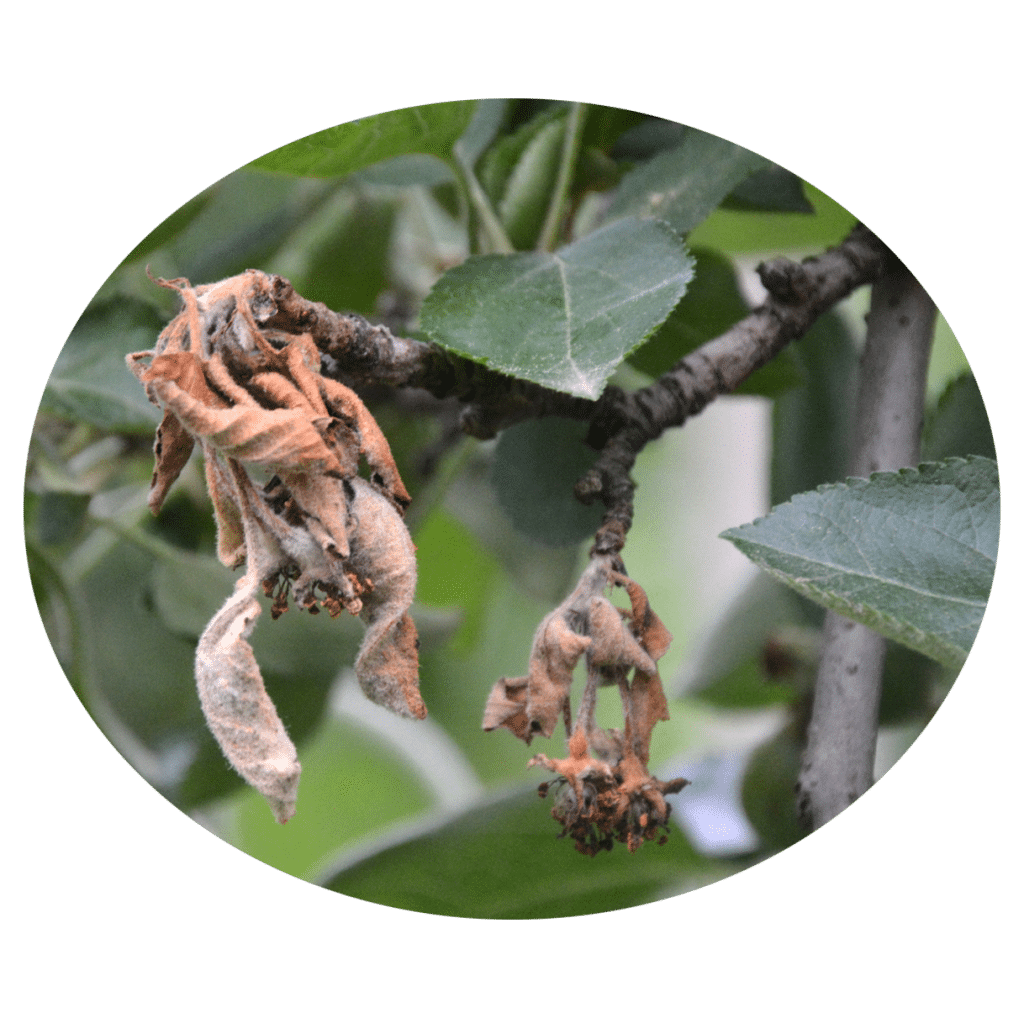
Expertly Combating
Fire Blight
Signs of Infestation:
- Wilting and browning of leaves
- Brown ooze at the sites of cankers
Treatment:
- Prune out terminal infections
- Spray or systemic application
- Fertilization
Trees affected:
Pear, crabapple and hawthorn trees
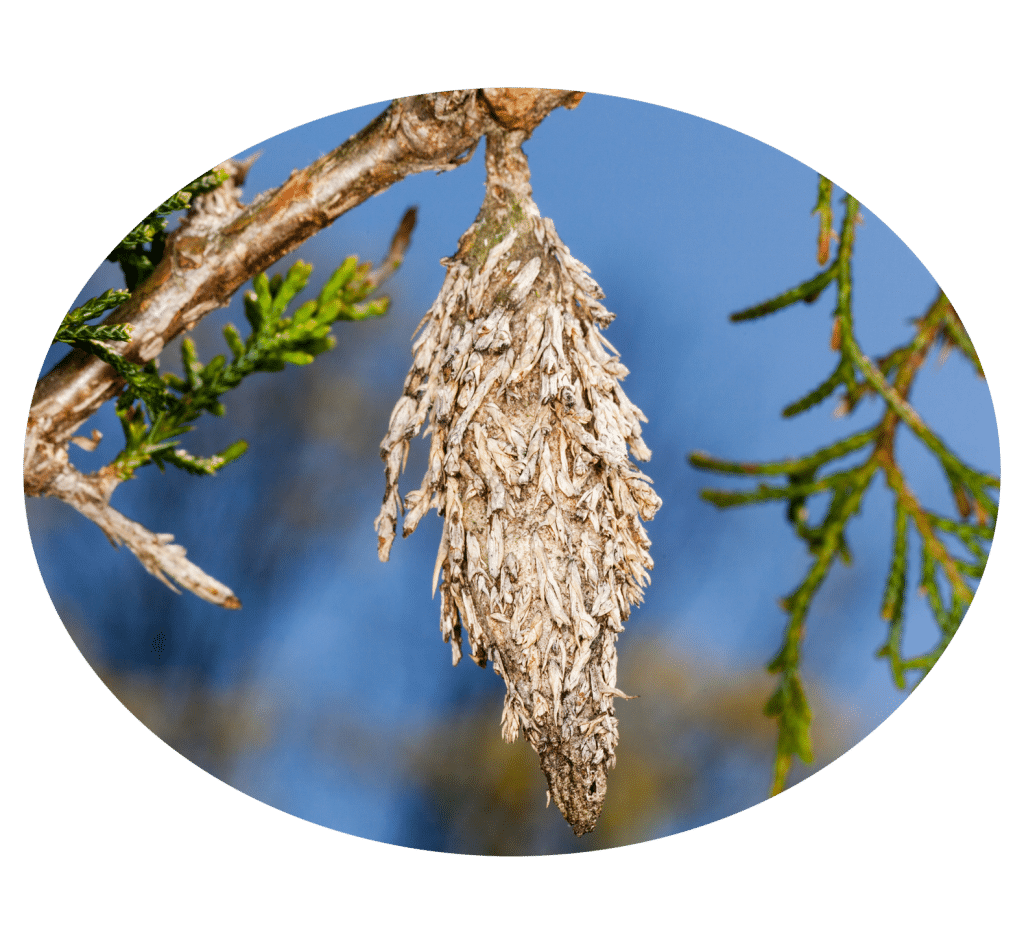
Psychidae
Bagworms
Bagworms are the larva stage of a moth. They can be extremely harmful to your trees and landscape, particularly deciduous trees.
Signs of Infestation:
- brown or stressed needles at the tips of branches.
- Color change: trees become pale or brown.
- Wiggling white bags hanging from the tree.
Treatment:
Application of insecticide
Trees affected:
Arborvitae, Juniper, Pine, Spruce, and many other evergreen species, certain deciduous trees such as Black Locust, Honeylocust, and Sycamore.
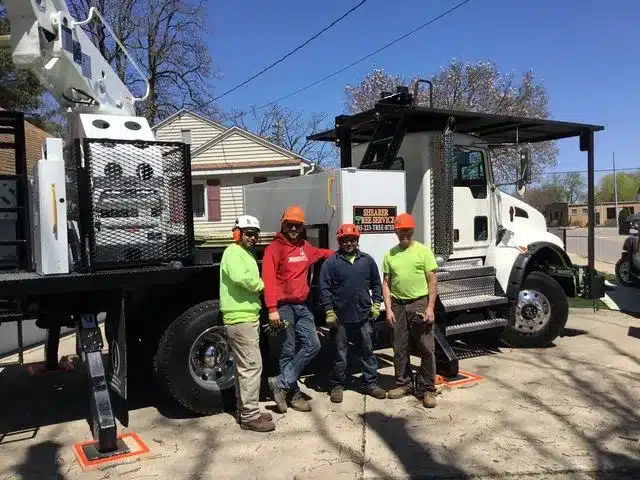
Why Hire A
Licensed Arborist?
With 32 years of experience in the industry, Shearer Tree Service, LLC knows a thing or two about disease and insect infestation. Family and locally owned and operated, we live in the area and deal with diseased trees and insect infestation issues all the time.
If you need help with a diseased tree, turn to Scott Shearer, our ISA-certified arborist. A certified arborist is a tree expert. Arborists are experienced and knowledgeable individuals who are well educated and trained to diagnose, treat and/or provide the best recommendation for restoring a tree’s vigor, function and overall good health.
If you’re having a problem, we’ll get to the bottom of the issue. Stop by or call us today for a free estimate.

